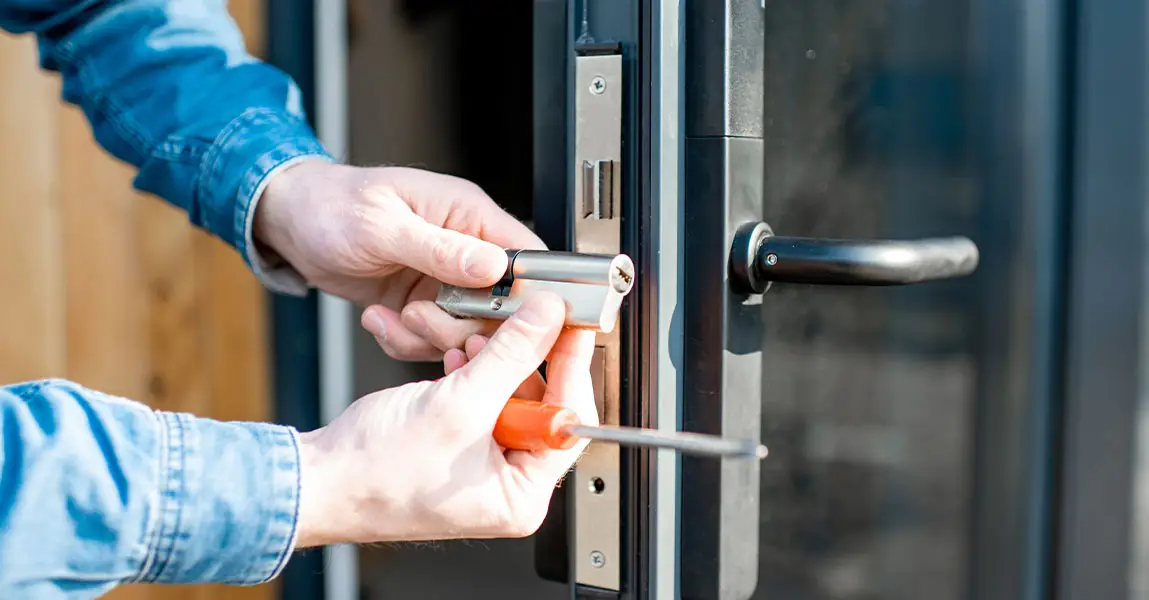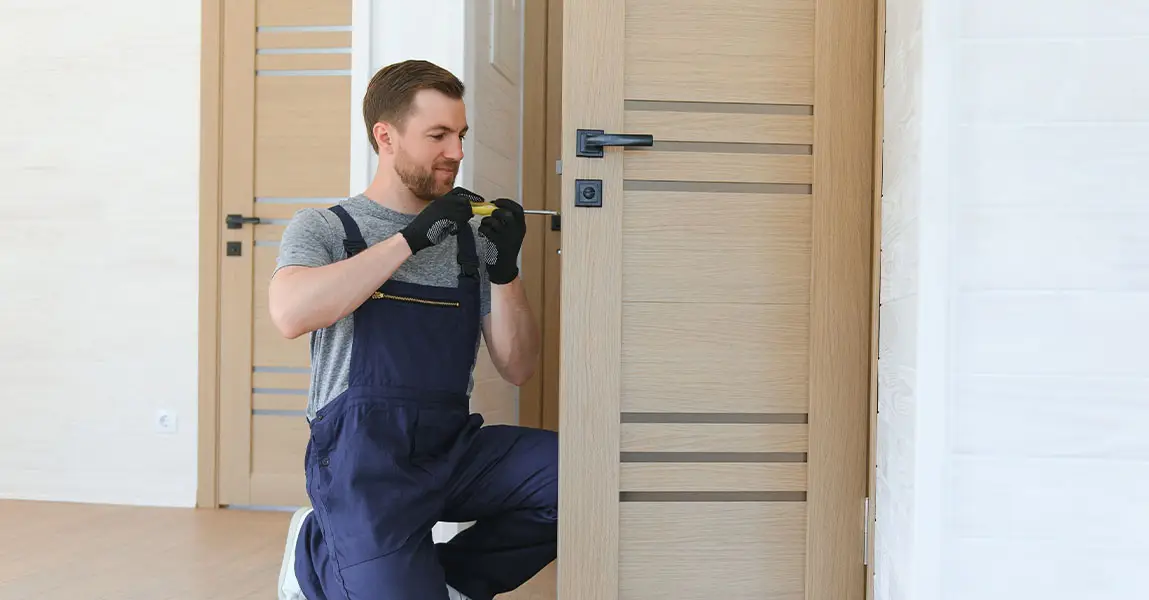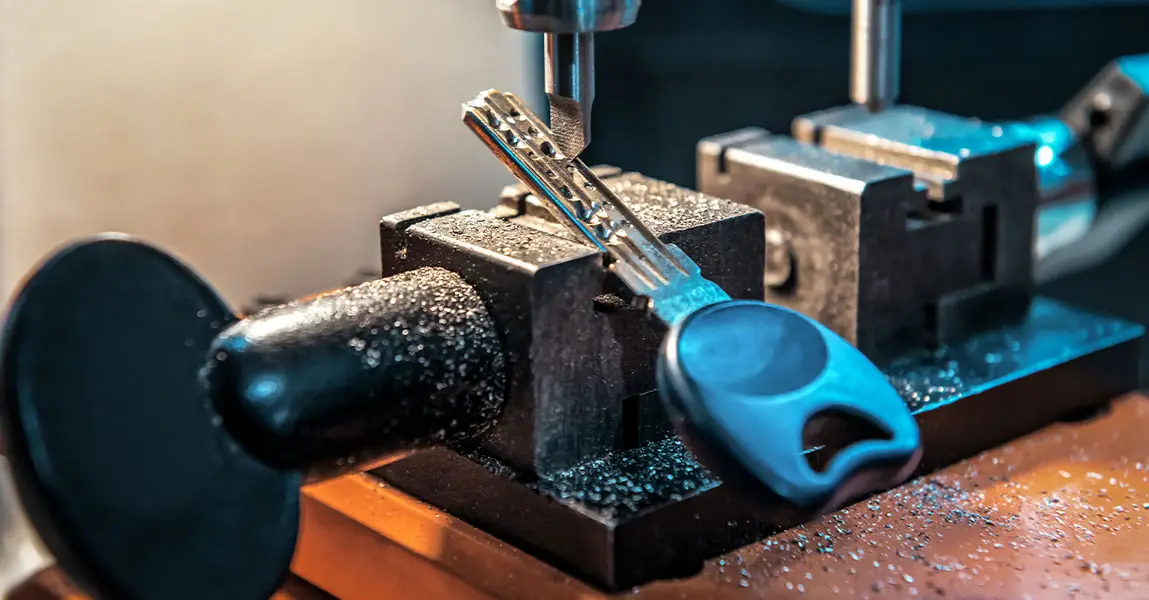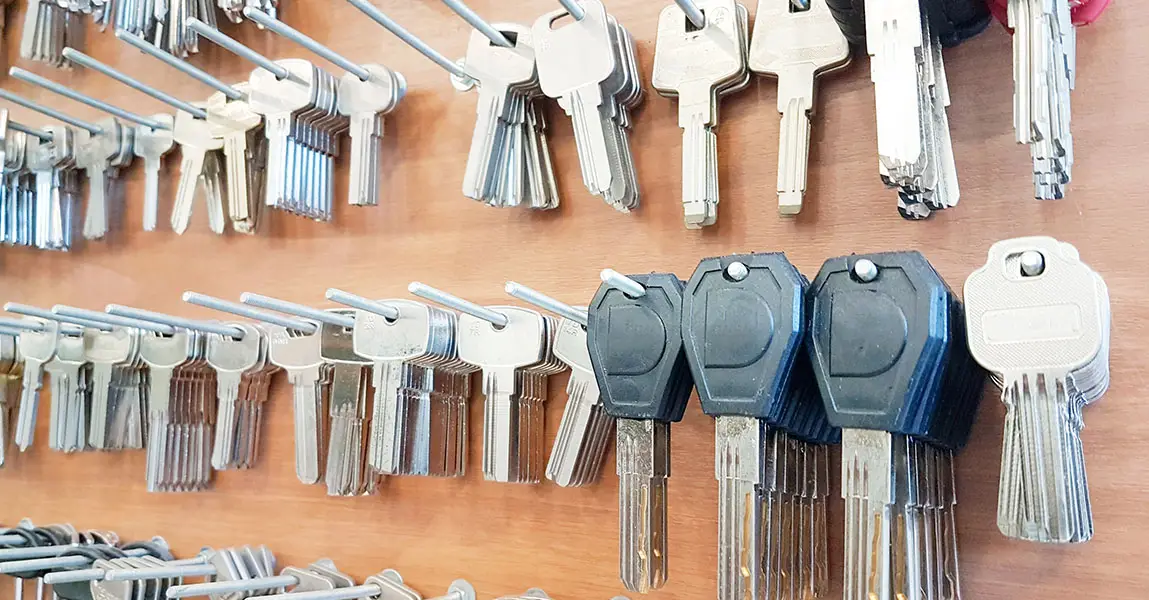When we think about security, the locks on our doors are one of the first things that come to mind. Our team works with both traditional locks and the latest smart systems every day. Because of that, we understand the strengths and challenges of each type. In this post, we want to share how locksmiths like us deal with both, and why knowing the difference can help homeowners and businesses stay secure.
Working with Traditional Locks
Traditional locks are still the most common security systems in homes. We handle everything from deadbolts to mortise locks. Each type requires a specific skill set. For example, when a key breaks inside a cylinder, we use extraction tools that remove the broken piece without harming the mechanism. That is to say, we can repair or replace parts while preserving the door hardware.
We also rekey traditional locks, which means changing the pins inside to match a new key. This is especially useful after moving into a new property. Moreover, it costs less than replacing the whole lock. Our experience shows that proper lubrication and regular inspection keep these locks working longer.
Handling Modern Locking Mechanisms
Electronic locks are becoming more popular in Calgary homes and businesses. These include keypad entries and key card systems. We install, repair, and troubleshoot them when errors occur. For instance, if the keypad loses power, we check the wiring, battery packs, or circuit boards to restore function.
Many of these locks still use mechanical parts along with electronic features. Because of this, we combine our knowledge of both fields when fixing them. Our approach ensures no part of the system is overlooked. Similarly, we remind owners to update the access codes regularly to reduce the risk of compromise.
How We Work with Smart Locks
Smart locks connect to phones, WiFi, or Bluetooth. They offer features like remote access, time-limited codes, and activity logs. However, they also bring challenges. We see cases where apps fail to sync, or the lock disconnects from the network. In such situations, we reset the software and make sure the firmware is up to date.
We also advise on battery life. Smart locks can stop functioning without warning if not checked. Consequently, we recommend changing batteries on a schedule rather than waiting for low power alerts. We also ensure backup keys are available, because even the most advanced technology can face glitches.
Comparing Smart and Traditional Locks
Each type has benefits. Traditional locks are durable, affordable, and easy to maintain. Smart locks add convenience and advanced features. However, both require professional handling at times. Our role is to match the solution to the need. For example, a busy office might benefit from access logs, while a homeowner may only need a reliable deadbolt.
From our experience, layering security works best. A solid deadbolt combined with a smart system provides both strength and flexibility. We often recommend this mixed approach, especially for people who want added peace of mind.
Emergency Situations with Locks
When people are locked out, stress levels are high. We handle these calls for both traditional and smart locks. With mechanical locks, we use tools like picks, bump keys, or decoding devices to regain access without damage. However, with smart locks, the process is different. We may need to reset the device or use hidden mechanical key slots.
Our priority is always to provide access while protecting the property. In many cases, people forget that their smart lock includes a backup key option. We guide them through these features, which saves time and reduces frustration.
Maintenance Tips for Traditional Locks
Keeping a lock in good shape makes a big difference. We suggest cleaning out dust and applying a silicone-based lubricant once or twice a year. This prevents pins from sticking and ensures smoother key turns. In addition, checking for loose screws or worn strike plates can prevent bigger problems.
One extra tip we share with our clients is to avoid using graphite powder unless specifically advised. While it was popular in the past, it can build up over time and cause blockages. Instead, modern lubricants are more reliable and extend the lifespan of the lock.
Maintenance Tips for Smart Locks
Smart locks need more than just mechanical care. We always remind people to check their software updates. Developers often release patches that fix bugs or improve security. Skipping these updates can leave the lock vulnerable.
It is also wise to test connectivity every month. This ensures the app and lock are still communicating properly. Furthermore, keeping a spare set of traditional keys nearby is important. Technology is useful, but it should never replace a backup plan for emergencies.
Security Insights from Our Work
Over time, we have noticed that burglars often target weak points rather than locks themselves. That is why we encourage homeowners to strengthen doors and frames along with upgrading locks. Strong hardware makes forced entry much harder.
We also see cases where people rely only on smart features like alerts, thinking they provide full protection. While these features are helpful, they cannot replace strong physical barriers. In other words, combining both traditional and smart approaches results in the best defense.
For those searching for a reliable locksmith Calgary, knowing that the provider understands both lock types is essential. A skilled locksmith will not only fix problems but also give advice on preventing them in the first place.
Choosing the Right Solution for Your Needs
Different homes and businesses require different approaches. For example, rental properties may benefit from smart locks because they allow remote code changes between tenants. In contrast, a small family home may prefer a sturdy mechanical lock for its dependability.
We always start by asking about the lifestyle and needs of the client. After that, we recommend a balance between cost, convenience, and security. By doing so, we help people feel confident in their choices and avoid overspending on unnecessary systems.
If you are thinking about upgrading your security or dealing with a lock issue, the best step is to contact us and talk to our team. We can explain your options in detail and guide you toward the best solution for your situation.
Frequently Asked Questions
What is the main difference between smart locks and electronic locks?
Smart locks usually connect to phones and networks, while electronic locks work with keypads or cards but may not have remote features. Both add convenience, but smart locks go further with app control.
Do smart locks still use keys?
Yes, most smart locks include a mechanical key slot. This ensures that even if the battery or app fails, you can still open the door with a traditional key.
How often should I maintain my locks?
Traditional locks should be cleaned and lubricated once or twice a year. Smart locks require the same care, plus regular battery checks and software updates.
Can a locksmith open a smart lock without damage?
In many cases, yes. We use reset procedures or hidden backup methods. Damage is rare if the lock is serviced by a professional with proper tools.
Is it safer to use both smart and traditional locks together?
Yes, combining them creates layered security. The smart lock adds convenience and monitoring, while the traditional lock provides strong physical protection.











